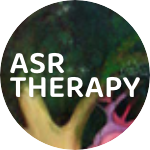Groups
PTSD ADDICTION GROUP:
in Westwood, California
PTSD/Addiction Women’s Group in Westwood California. This group offers a level of processing historical trauma as well as an opportunity to deepen individual and collective wounds that contribute to addictive disorders, such as co-dependency, eating disorders, gambling, chemical dependency, love addiction, process addictions. Currently there is a high level of exposure to global stress, ranging from economic to interpersonal. These stressors can exacerbate historical trauma. This group offers a supportive place to gain reflective perspective. For those in the crisis stage of trauma or addictions, there are also referrals available, which will be assessed prior to an initial consult. Please call and leave a voice mail if interested. This is a landline, so no texts or e-mails at this time. 310-209-0740
 LOCATION
LOCATION
If sessions are on Thursdays, parking is available on Broxton Avenue. There is a Farmer’s Market, which offers products from local farms and vendors. Additionally, on every day of every week, prior to sessions or during, friends and family can wait or rest in the newly developed People Street.
Women’s Group for PTSD, Complex PTSD, Addictions, and Process Addictions.
This group meets on Thursday nights, in Westwood Village.
The focus of the group is on bridging the developmental gaps between any or all traumatic disruptive experiences over the lifespan, into a life based on today’s experience, vs. flooded with memory and/or the past. The group is both a supportive group and a process group. It is a longer term group. If you are interested in this dynamic group, please call 310-209-0740.

About groups …
Judy McLaughlin-Ryan MFTAfter graduating from Pennsylvania State University, I acquired a Partial Masters Degree at Cal State Dominguez Hills, and finally a full Masters Degree from Antioch University. I implemented this cumulative knowledge from the areas of Special Education, Behavioral Sciences, and Family Systems Theory into my private practice, treating individuals, groups, families, and couples.
With a profound conviction that community and group process was the fundamental predicative factor for a positive prognosis in the area of Post Traumatic Stress Disorder, I started a group focused on Cross-Addiction and Sexual Abuse. I started this group almost twenty years ago, and have continued conducting Trauma groups since that time.
Currently I run a psychotherapy process group for those effected by sexual abuse and PTSD. Observing treatment outcomes of the clients participating in the group process, in contrast to those not involved in a group process, I have acquired on hand experience and clinical information regarding group and community outcome in regards to trauma victims suffering from symptomotology involving dysregulation of both state and affect, as well as attachment issues ranging from disorganized to insecure in nature.
From the above perspective I have presented, consulted, offer an eight hour CEU, have been published, supervise, and most recently conducted a workshop on groups and trauma at The European Conference on Traumatic Stress. My education and enrichment throughout the past twenty years has focused on trauma and community treatment.
Post internship I continued facilitating a group for Adults Molested as Children, I also continued to focus on the patient population that had addictive disorders and PTSD. Some of the women in the group had some history of an addictive disorder with Post Traumatic Stress Disorder. I have continued to run this group up until now, 2012. Throughout the years, I have been treating patients that have been diagnosed primarily with PTSD/Eating Disorders/Alcoholism/Drug Addictions. Some of these patients I have treated intermittently over the past twenty years, and a handful of theses patients I have treated more continuously. As a result, I have had the opportunity to gather first hand knowledge about the treatment outcomes of those diagnosed with Post-Traumatic-Stress Disorder, Eating Disorders, Addictions, and/or Alcoholism.
The observations I have made are biased because I am in Private Practice, and therefore do not have a randomly selected patient population. I have chosen the patients that I treat based on word of mouth referral. Also, most of the referral sources know beforehand, that I am an advocate of twelve-step groups as an adjunctive to treatment for those with addictive disorders. My patients range in age, ethnicity, religion, gender, status, and class. I have reached some conclusions regarding the long-term effects of treatment on attachment, twelve-step groups influence on healing, altruism, forgiveness, the prognosis of the traumatized families, and long term recovery for those who have suffered from PTSD, Eating Disorders, Alcoholism, and Drug Addictions. This paper is based on a longitudinal experience over the past twenty years and current research. I will discuss some clinical cases to illustrate my findings regarding how patients have metabolized the traumatic experience.
The traumatic experience in and of itself only leaves the victim in a state of dissociation and denial or helplessly conscious of a world unable to protect one from extreme unbearable inconsolable levels of darkness. PTSD is rarely episodic because the victim is left with residual triggering experiences which may last over the life span, ranging from mild to severe. Without the traumatic experience having value to the victim and to others, in an interactive experience, the trauma is likely to implode and fester. This leads to alcohol, drug, and food abuse or addictions, and to relational and regulatory impairments.
These potential impairments as a result of trauma can be lessened by providing the patient with a community, social support, or a 12-step group that realizes the value of the traumatic experience as a way of helping others, by finding meaning in the experience, helping others through similar experiences and sharing the meaning of the experiences , and gaining increased support, comfort, wisdom, retrospection, and intimacy by being a part of the group or community. This invaluable experience goes beyond the bounds of the consult room, where the primary attachment and regulation certainly needs to take place, but is strengthened by a broader physical and emotional contact with the patients world.
Throughout the years I have practiced, I have observed patients who attended twelve-step programs, as well as those who have not. The most positive outcomes in treatment were those who attended the program and were able to find bonding relationships within the program. Often, I recommend the twelve-step program, and at times make attendance in the twelve-step program a requirement in treatment.
I have had the opportunity to work with this specific patient population for many years, therefore my suggestions are formulated from observations and clinical experience. During the years of l986-1988 I was interning as a marriage family psychotherapist at a clinic in Beverly Hills, California, which provided psychological services and I was also employed at an eating disorder/ alcoholism treatment program. At this time I became focused on patients seeking help for multiple addictions and PTSD. Many patients that had eating disorders, and/or addictions to alcohol and/or drugs, also had high rates of Post Traumatic Stress Disorder due to childhood trauma. At this time, I started a group for women with cross-addictions. I also focused on treating patients with addictions and PTSD. I recognized the need to implement treatment strategies for these co-occurring conditions, which had two primary symptoms in common, one of dysregulation and the other dysfunctional attachment patterns.
